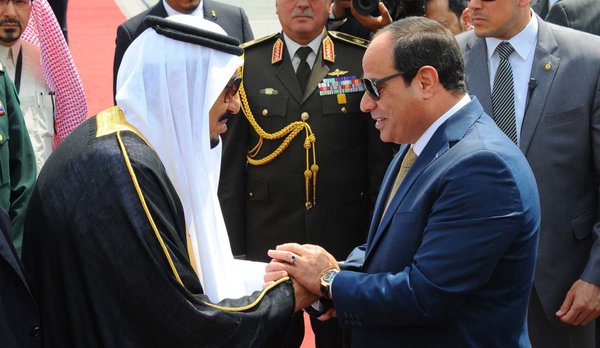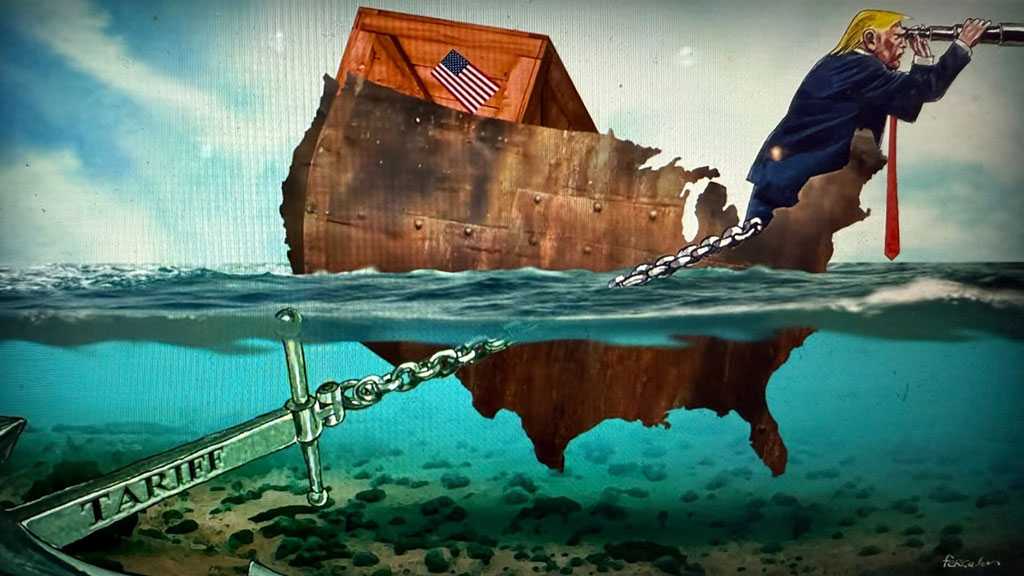Red Sea Islands Deal Boosts Chances for Deals between ’Israel’, Palestinians and Arab States

Local Editor
The name of the game is regional cooperation for mutual benefit. The islands deal between Egypt and Saudi Arabia is a good example of a creative idea that invites imitation.

The transfer of the islands of Tiran and Sanafir from Egypt to Saudi Arabia - it doesn't really matter whether they're being "returned" or leased - is a good deal for "Israel" in the type of precedent it sets [though it isn't really the first.]
Only people who look backward will relate to it with concern. Looking forward, it portends some positive possibilities. It would be best to break away from the tyranny of the past.
When we look back, one can go even further back than the five "Israeli"-Egyptian wars, which, according to the currently accepted strange method of counting, [the Second Lebanon War, the second intifada], involving operations and campaigns of different sizes, one could number them as "the first Sinai war" [Operation Horev, with the "Israeli" army infiltrating northern Sinai until El Arish, 1948], the "second Sinai war" in 1956 [Operation Kadesh]; the third in 1967, the fourth [the War of Attrition, 1969-70], and the fifth [the Yom Kippur War.]
Although it's customary to classify only the 1956 and 1967 wars as related to freedom of navigation in the Red Sea, in fact the two wars following the Six Day War took place against the backdrop of "Israel's" refusal to give up on a strip of sea floor between El-Arish and Sharm el-Sheikh.
Even earlier, before US President Harry Truman recognized Eilat as being in "Israeli" territory, there was a meeting in February 1945 between Truman's dying predecessor, Franklin D. Roosevelt, and Ibn Saud, father of the current Saudi King Salman [who was then nine years old].
The Saudi king was a guest on the American destroyer USS Quincy and formulated with Roosevelt the basis of the Saudi-American alliance that has survived numerous crises in the past seven decades, and which will be hailed by US President Barack Obama during his visit to the Gulf region next week.
Ibn Saud failed to influence American policy and make it anti-Zionist...However, Roosevelt's legacy is actually relevant in a different context - the lend-lease program with Britain, under which the United States supplied warships, warplanes and other weaponry in return for bases in the Caribbean islands and later also in Canada and Bermuda.
This plan circumvented legislation promoted by isolationist Republicans in Congress that forbade the sale of military equipment to World War II combatants during the two years before America was forced into the war by the Japanese attack on Pearl Harbor. Under lend-lease, both Washington and London got what it needed.
Egypt is always short of money, while Saudi Arabia lacks military power. The Egyptians are strong and poor, while the Saudis are weak and rich. This was a bad match during the ambitious era of Gamal Abdul Nasser, who helped Saudi Arabia's enemies in Yemen [which was countered by American and "Israeli" aid to Yemeni royalists, Nasser's rivals]. It was a good match from the era of Anwar Sadat and thereafter, when a notch or two below the leaders there were also purposeful business and information-sharing relationships, like that of Saudi intelligence chief Kamal Adham and his Egyptian friend Ashraf Marwan.
The Yom Kippur War blunted, though it did not eliminate, the importance of the Straits of Tiran. During the war itself the straits facing Sharm el-Sheikh were mined. Even worse, the threat to Eilat shipping was moved southward, to the straits of Bab-el-Mandeb.
Missile boats that were meant to reach the Red Sea by sailing around the Cape of Good Hope were delayed. But after the war a geostrategic fact was established: Tiran and Sanafir returned to their marginal status of the middle of the 20th century.
So-called "peace" with Egypt and "Israeli" shipping through the Suez Canal, including the passage of "Israel" Navy ships, pushed the Red Sea back to its natural proportions.
The Red Sea has four partners - "Israel", two Arab countries with which "Israel" has "peace" treaties, and Saudi Arabia, which is an undeclared ally against the common enemy, Iran.
Riyadh and Amman were able to reach a land-exchange agreement in the 1960s, with Jordan getting a piece of the Saudi coast south of Aqaba in return for an adjustment along its eastern border.
This new deal on the islands with Egypt strengthens the validity of that precedent and increases the chances for multilateral arrangements involving "Israel", the Palestinians, and the Arab states...
The name of the game is regional cooperation for mutual benefit. The islands deal is a good example of a creative idea that invites imitation, and if it can help Egypt avoid a collapse that would threaten the fragile security of the Middle East and flood Europe with yet another wave of hungry and desperate refugees, so much the
better.
Source: Haaretz, Edited by website team




